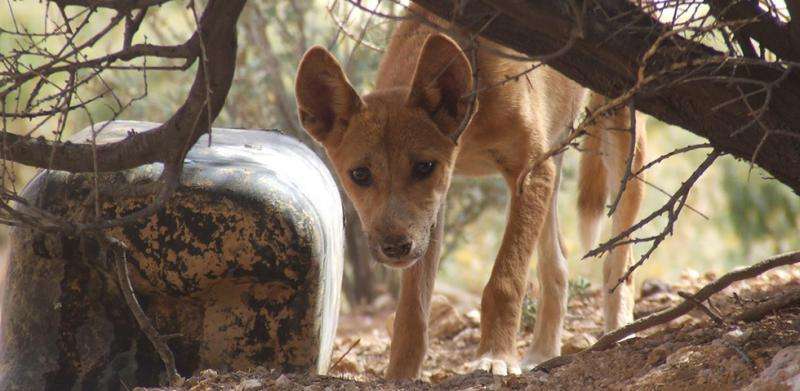Predator-friendly farming—good for livestock, dingoes and the bottom line

A unique study into the impact of predator-friendly farming practices on an Australian cattle station gives an inside view into the causes of livestock mortality over a two-year period. The UTS-led research team found that husbandry practices, not dingoes, were most likely the primary cause of preventable deaths for cattle on Evelyn Downs, an extensive landholding in the north of South Australia.
The study concludes that protecting dingoes and improving husbandry practices, such as dam maintenance, is likely to increase survival and welfare of cattle significantly, as well as improve economic outcomes on large stations.
UTS researcher Dr Arian Wallach and Adam O'Neill from the Dingo for Biodiversity Project spent two years managing Evelyn Downs as a predator-friendly property where the killing of wildlife and carrying of guns was banned. Dingoes were also proactively protected through the maintenance of bores which gave the animals uninterrupted access to water.
"Stopping dingo deaths on Evelyn Downs did not result in high or increasing predation rates … the main cause of deaths was the drying of silted dams," Dr Wallach, a Chancellor's postdoctoral research fellow in the UTS Centre for Compassionate Conservation, said.
"Our results are in line with other studies from around the world that show killing predators for livestock protection is generally unnecessary and counterproductive."
Dr Wallach said the dingo (Canis dingo), Australia's apex predator, lives in extended families led by a single breeding pair.
"When you kill socially complex species like dingoes you disrupt their social groups which increases reproductive rates and movement between territories. Our research shows that when you end lethal control, particularly on the vast stations of the Australian arid zone, it's possible to reduce livestock losses as the predator's social structure stabilises," she said.
The research is published in a special edition on predator control in the Journal of Mammalogy where an interdisciplinary group of wildlife biologists and social scientists present new evidence on the impact of predator-friendly farming practices. As well as the research on dingoes, the feature edition includes and analysis of a seven-year program that successfully minimised wolf-sheep conflict in America using non-lethal methods, and a study providing evidence of the growing intolerance among Americans for lethal control of predators.
"Large predators are declining worldwide primarily due to hunting and persecution by humans, driven in large part by the livestock industry," Dr Wallach said.
"We hope this research provides a platform for more informed debate around dingo eradication programs and ways to improve the environmental and ethical standards of meat production."
More information: Abstracts of the six papers in the Special Feature can be read at the journal website: academic.oup.com/jmammal/issue/98/1
Journal information: Journal of Mammalogy
Provided by University of Technology, Sydney




















